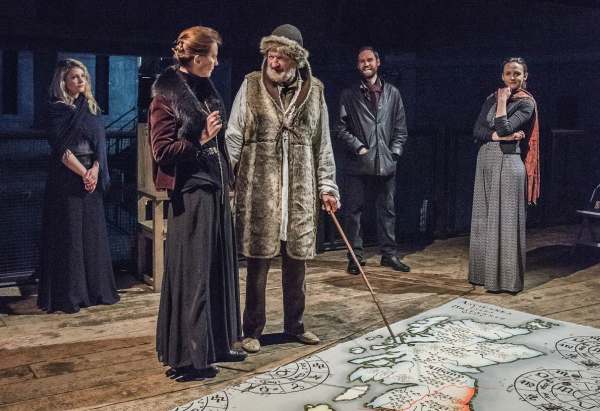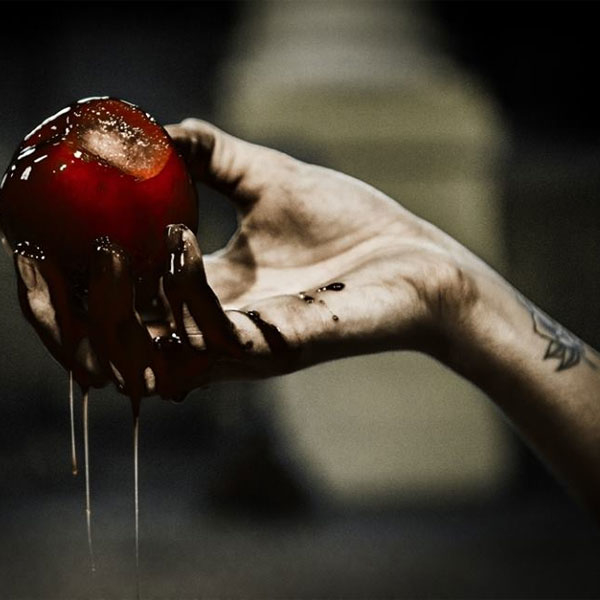King Lear (Rose Playhouse)

The remains of the Rose, Bankside’s first playhouse in 1587 and first site of Marlowe’s plays and Titus Andronicus, were fully exposed for the first time in 1989, just fifty yards round the corner from the new Shakespeare’s Globe, buried but preserved beneath an office development.
A wooden viewing platform above the octagonal outline and watery foundations has been used recently as an events and performance venue. It’s something of a coup to present that exceptional actor, John McEnery, robust and spindly, his voice a natural composite of the rough and the smooth, as King Lear in a pared-down, 100-minute version by the Malachites company.
It’s a narrow space, seating just fifty spectators (many wrapped in blankets; quite chilly in there), Lear’s map of the kingdom at their feet. Music wafts across the "lake" from the other side, where Lear himself is revealed in the storm on "Blow winds, and crack your cheeks".
Benjamin Blyth’s production indicates the possibility of these spatial variations more than it exploits them; the hovel scene is too garbled and frantic, and there could have been some stunning moments of isolation and alienation.
The encounter between blind Gloucester (Brian Merry) and his disguised son Edgar (Ludovic Hughes) on Dover cliffs, for instance, surely the greatest scene in all Shakespeare, could have been infinitely more effective if we, too, were watching from below, or at least from afar.
As it is, the actors do pretty well in our laps, and McEnery has a great trick of making his powerful voice more sinewy and rational as he shuffles into madness, sporting a Christ-like crown of thorns and tossing a coin like Stoppard’s courtiers ("They cannot catch me for coining"). When his wits are out, his soul is in, an old man liberated by his own inability to know who he is or where he did lodge last night.
McEnery takes unusual strength in his pitiable condition, not even hinting at sentimentality. There’s a hard edge, too, to Claire Dyson’s frozen-hearted Goneril (thawing into lust at the end) and Orla Jackson’s slinky, pouting Regan. There’s too little investigation of Lear’s relationship with the Fool (Samuel Clifford), but that’s a fault of most productions; the cuts, which include the prophecy speech and most of the jokes, don’t help. And the final political alignments are concertinaed into unsatisfactory shorthand.
The ground plan remains, suitably enough. The verse-speaking is rudimentary – McEnery a class apart – though William De Coverly puts a lot of good energy into the bastard Edmund and Emma Kirrage is a brave Cordelia. The rough and ready approach is right for the space, and the costumes – leathers, boots and jerkins – are only let down by Regan’s incongruously silky patterned flares.
King Lear runs at the Rose Playhouse until 30 April 2015












